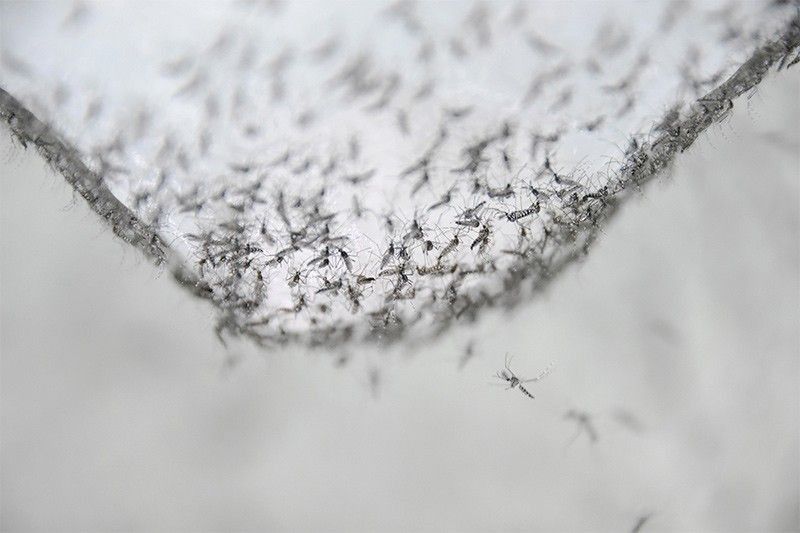Sterile mosquitoes to be tested vs dengue, malaria

MANILA,Philippines — Millions of sterile male mosquitoes will be released in different parts of the world as part of a global scientific research that aims to reduce the population of the insect known to carry diseases such as dengue and malaria.
The World Health Organization (WHO) on Thursday announced that the guidelines for the pilot implementation of the Sterile Insect Technique (SIT), which will be tested as part of the efforts to reduce cases of diseases transmitted by the mosquitoes, has already been completed.
“Countries have already started like Italy, Greece and Mauritius, and others are on the point of doing it, for example the United States, France and Brazil,” Jeremy Bouyer, medical entomologist at the Division of Nuclear Techniques in Food and Agriculture, said in a statement released by the United Nations.
“We already have evidence that SIT is able to reduce the density of mosquitoes very significantly and now we must prove that it will also impact the transmission of the disease,” he added.
The SIT was initially developed to target crop-eating insects, according to the UN, with its researchers spending the past decade trying to adapt it to disease-carrying mosquitoes.
Bouyer said the SIT is an “an insect birth control method” that involves releasing sterile males “that will out-compete the wild males in the field.”
This, he said, will induce sterility in the females to prevent their eggs from hatching.
The scientist said the technique would be able to reduce and even eliminate the target population if done long enough.
The UN said the team has worked with the WHO Tropical Diseases Program to develop guidelines for countries that want to implement it. It has yet to be announced if the project will be implemented in the Philippines, which is among the countries that reported an increase in dengue cases this year.
According to the WHO, diseases transmitted by mosquitoes such as dengue, malaria, Zika, chikungunya and yellow fever account for about 17 percent of all infectious diseases globally.
The agency said the number of dengue cases across 110 countries may reach four million this year, up from the average of three million every year.
Florence Fouque, team leader of the UN-sponsored program for research and training in tropical diseases, said that it would take four years to determine the results of the pilot tests.
“Sometimes very low population of mosquito can still transmit disease, so what we have to measure is its impact on the people, and this is what we want to do because it has never been done until now,” Fouque added.
Raman Velayudhan, coordinator of the WHO’s Department of Neglected Tropical Diseases, stressed the safety in releasing the sterile mosquitoes, saying that no “test tube manufactured” genes were being inserted into mosquitoes.
“The mutations we are creating with this system are random, so we are not transgenic, we are not putting transgenes into the mosquitoes and they are occurring naturally in the population,” he said.
“It’s just that we have enough mutations to create full sterility in what we release. But there is no particular concern with what we release, the mosquitoes are not radioactive, they are just irradiated and thus sterilized,” he added.
- Latest
- Trending





























